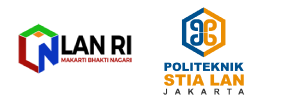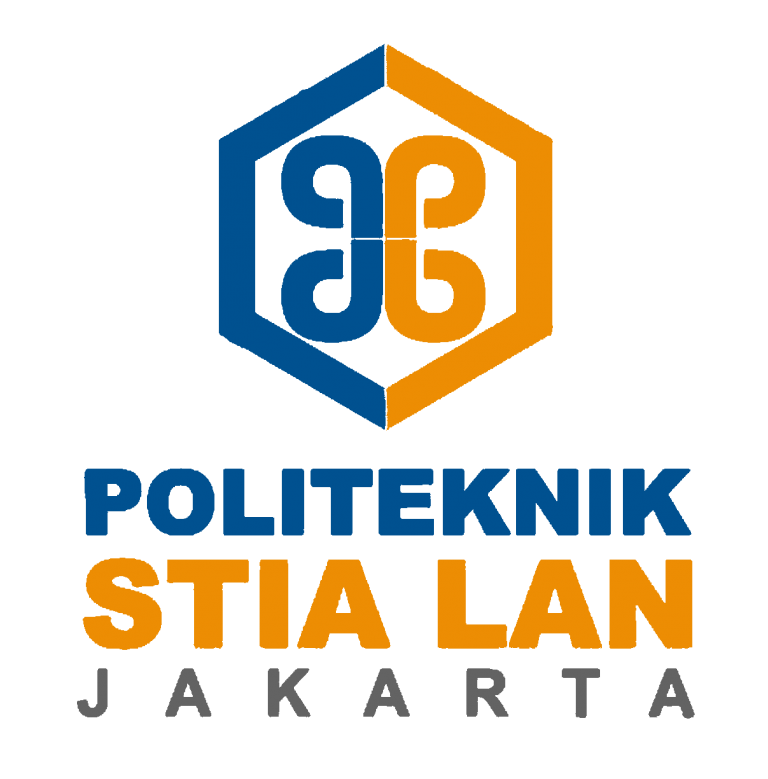VISION
Becoming an Excellent Vocational Study Program in the Field of Apparatus Resource Management in 2030
MISSIONS
- Performing vocational/applied higher education in the field of quality and innovative apparatus resource management;
- Conducting research and community service in the field of apparatus resource management with vocational/applied higher education characteristics;
- Performing an effective, efficient, accountable, transparent, and fair management system;
- Create networking with various stakeholders at the local, national, and international levels.
CURRICULUM
Subjects/courses in the Apparatus Resource Management Study Program consist of General Compulsory Subjects (MKWU), Institutional Subjects, Core Subjects, and Crossed-Study Program Subjects, with a total of 144 credits. Subjects are distributed in packages of 7 (seven) semesters. The distribution of subjects per semester is as follows:





LEARNING OUTCOMES
Character
- Interact and communicate effectively, both scientifically and practically;
- Upholding morality and piety towards God;
- Internalizing academic values, norms, and ethics;
- Performing role as citizens whose dignity and pride for the country, upholding nationalism and a sense of responsibility to the state and nation;
- Respecting the diversity of cultures, perspectives, religions, and beliefs, as well as the original opinions or findings of others;
- Contributing to improving the quality of life in society, nation, state, and the advancement of civilization on a value basis of Pancasila;
- Developing the ability to cooperate and have a social concern as well as empathy for community and environment;
- Obeying the law and discipline as citizens;
- Internalizing the spirit of independence, struggle, and entrepreneurship;
- Demonstrating an attitude of work responsibility in the field of expertise independently;
- Internalizing professionalism and integrity.
Cognitive Domain
- Mastering general theoretical concepts of political science and social theory;
- Mastering theoretical concepts of administration, development, organization, bureaucracy, public policy, public services, organizational behavior, state finances, administrative reform, public governance, archive, and asset management;
- Mastering macroeconomic principles, state administrative law, risk management, and public administration ethics;
- Mastering qualitative and quantitative research methods including survey methods, field research, case studies, document studies, also specified and technical research of policy, development administration, archive, and asset management;
- Mastering the principles and techniques of persuasive communication, both oral and written.
General Skill
- Applying logical, critical, systematic, and innovative thinking in the context of science & technology development and implementation of humanities values in accordance with a certain field of expertise;
- Ability to demonstrate an independent, quality, and measurable performance;
- Assessing the implications of science & technology development and implementation on humanities values in accordance with a certain field of expertise and the basis of scientific principles, procedures, and ethics to produce solutions or ideas;
- Arranging scientific research in the form of an undergraduate thesis or final project report;
- Ability to formulate decisions appropriately in the context of problem-solving in accordance with a certain field of expertise, based on the results of analysis of information and data;
- Ability to maintain and develop networks with mentors, colleagues, and peers both at internal and external institutions;
- Ability to perform responsibility in leading teamwork; supervise and evaluate the completion of work assigned to workers under their responsibility;
- Ability to carry out self-evaluation process of the work group under their responsibility, and able to manage learning independently;
- Ability to manage data documentation, storing, securing, and recovering to ensure validity and prevent plagiarism.
Specific Skill Aspects
- Ability to carry out management functions in general from planning to evaluation;
- Ability to make decisions in various types of organizations at the operational level;
- Ability to evaluate the implementation of tasks under their responsibility and carry out the feedback to improve organizational performance;
- Ability to conduct research projects with an exact methodology;
- Ability to conduct analysis and processing of human resource data as a source of decision-making;
- Ability to develop human resource planning;
- Ability to formulate the employee recruitment and selection process;
- Ability to implement employee compensation management;
- Ability to create an employee performance appraisal system;
- Ability to design employee development and manage responsibility for preparing, managing, and evaluating education and training programs in various educational institutions;
- Ability to practice employee retirement administration;
- Ability to apply the concepts of employee ergonomics and productivity;
- Ability to manage data staffing and operate human resource information systems;
GRADUATE PROFILES & PROFESSIONAL CERTIFICATION
The graduates of Apparatus Resource Management may succeed working in the Ministry, Central, and Regional Government/Institutions with the following positions:
- Competence development analysts – administrators of apparatus development study and analysis under the Regulation of Minister of Apparatus and Bureaucratic Reform No. 39 of 2021. Competence development analysts administer the following roles:
- Designing competence mapping;
- Performing competence development;
- Managing competence development monitoring and evaluation.
- Training and education manager – planners and administrators of training and education programs for civil servants. Referring to Presidential Regulation No. 79 of 2018, training and education managers administer the following roles:
- Preparing training plan;
- Managing training activities;
- Managing evaluation of training and maintenance at various training institutions.
To support the graduate competencies, students are obligated to take professional certification managed by a professional certification agency of NIPA School of Administration with 2 certification schemes including:
- Senior analyst of human resource planner
- Senior analyst of training and development
EXCELLENT WORK PROGRAM
- Applied-based curriculum development;
- Performing education and training for lecturers and students;
- Enhancing the quality of blended learning (online-offline learning);
- Performing a professional certification;
- Delivering academic and non-academic services;
- Hosting/co-hosting seminars and conferences (national/international).



